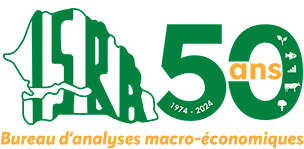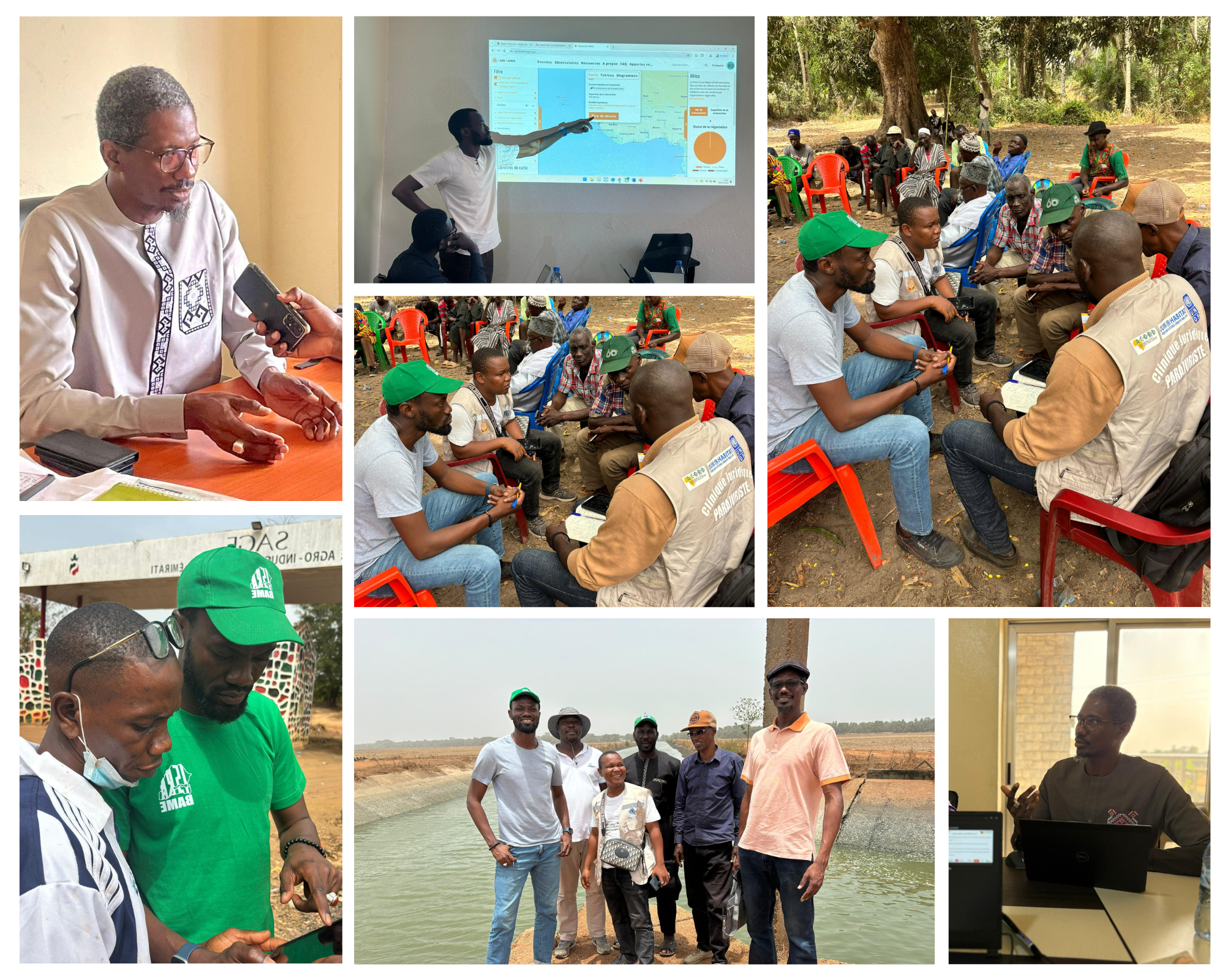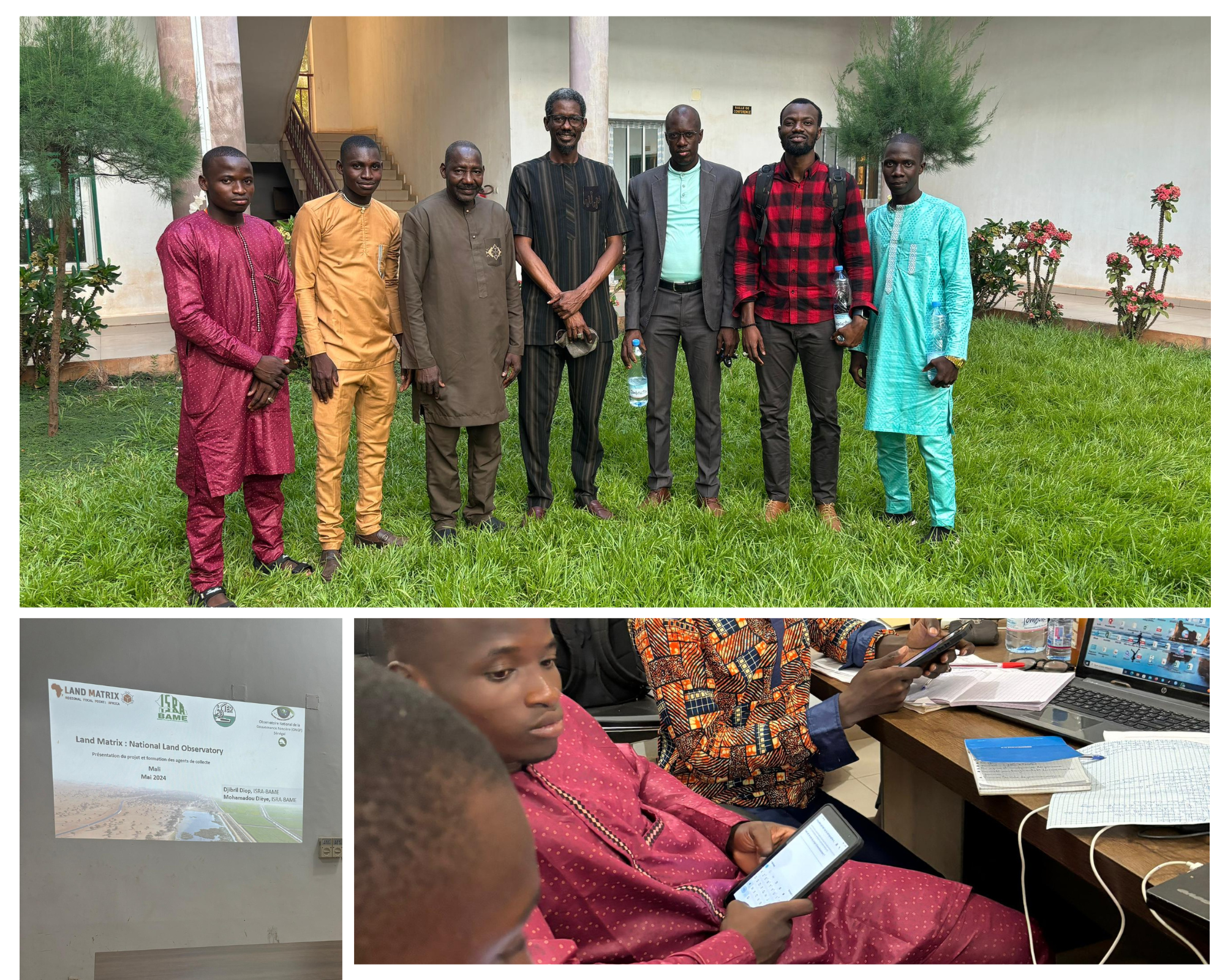ATGE problem : the Land Matrix extends to Mali and Guinea
Publié le 6 août 2024
The Land Matrix project technicians affiliated with the Macroeconomic Analysis Office of the Senegalese Institute of Agricultural Research (ISRA-BAME), proceeded to the presentation of the data collection tool (Kobocollect) for identification and characterization Large-Scale Land Acquisitions (ATGE) in Guinea and Mali.
This mission helped prepare partners and field teams to successfully conduct LSLA surveys, providing the knowledge, resources and support needed to achieve the Land Matrix project objectives. Its main objective is to facilitate the presentation of the Land Matrix project to partners, consolidate existing partnerships and ensure the training of agents in data collection techniques on the monitoring of Large-Scale Land Acquisitions (ATGE).
In the Republic of Guinea, the NGO ACORD plays an essential role in coordinating project-related activities. ACORD, recognized for its expertise in rural development and land rights, works closely with the team to adapt data collection methodologies given to the local specificities of Guinea. According to Djibril Diop, the idea of this project consists of providing the authorities with reliable data to project themselves into the future, then develop visions which leads towards the development of each of the affected countries. “We started this experience in Senegal, In the future we are looking at how to expand to other countries in the sub-region and in this phase, we chose Guinea through ACORD Guinea which is an organization credible and works a lot on land issues. In order to test and see everything that is dynamic in land occupation with all the activities in Guinea to have reliable data that can be mapped in the agricultural field after Guinea it will be Mali’s turn. But this year, we will focus on Guinea and Mali to deploy this tool to ensure better information on the global base which builds the Land Matrix network,” said Mr. Diop.
For his part, the program manager of the NGO ACORD Guinea, Kaman Koulemou, believes that this project fills the gap in statistical data in Guinea. “This study on the massive acquisition of land in Guinea will allow us to have a database by relation to the various statistics linked to land use in Guinea ; not only the lands which are acquired by foreigners, by wealthy nationals, but to family farmers who have also lost their land through agricultural investment projects and the installation of solar energies. So all these people will be listed so that we have a reliable database. This is what will allow us to make a plea to the Guinean government so that decisions can be made in relation to certain situations.” The ACORD Guinea program manager promises continued support for this project so that the requested objective is achieved.
In Mali, the Institute of Rural Economy (IER) is a key partner in achieving the project’s objectives. With its experience in agricultural research and land policy analysis, the IER brings valuable technical expertise to the collection and analysis of data on land investments. In collaboration with the team, the IER provides training to local teams on mapping and land investment monitoring techniques, while guaranteeing the quality and reliability of the data collected.
The data collected during these two missions in Guinea and Mali are being posted online on the Landmatrix website (https://landmatrix.org/) and will be available from September.



